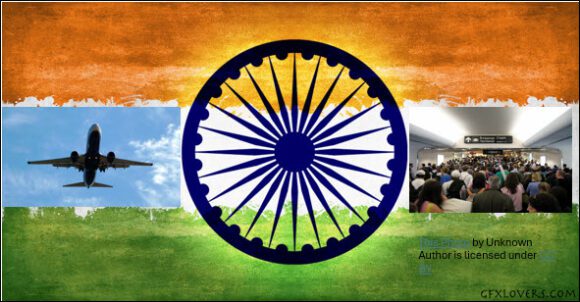IATA released an interesting PR this morning. Aviation security is a big issue that has, in a post 9/11 world, added high structural costs to commercial aviation that are very hard to recover. These costs are clearly a burden on air travelers as well as airlines. Neither travelers nor airlines need more costs and manifestly the global economy requires a highly flexible and efficient aviation sector to move people and goods quickly, while at the same time allowing for aviation sector firms to recover a reasonable return on capital.
Many governments have turned on commercial aviation as a source of tax revenues, in the belief that air travel has inelastic demand. Air travel has a relatively inelastic demand curve, but we have seen that aviation taxes are not always successful at increasing revenues for governments. The Netherlands and Eire are examples where aviation taxes essentially failed. The British ADP is going to end up impacting air travel in ways the government has not anticipated; already ADP has hurt travel to parts of the Caribbean, so the UK tax has downstream impacts which were probably not even considered in Whitehall.
IATA is correct in providing a vision that could help reduce cost burdens for airports and airlines, while providing adequate security. Anything to help reduce cost burden should be encouraged. Here is a quote from IATA:
“Checkpoint of the Future
IATA is calling for an overhaul of airport security screening and urging early adoption of the principles behind its Checkpoint of the Future vision. The CoF introduces a risk-based approach supported by advanced technology to allow passengers to move through the checkpoint without stopping, unpacking or disrobing.
“Today’s security checkpoint was developed in the 1970’s when hijackers carrying metal weapons were the threat. It is a 40 year-old-concept that needs to fundamentally change. We have added layers of process in response to threats and events but we have not made it any more intelligent because we do not use the information that is collected on passengers to power a risk-based approach. A one-size-fits-all model is applied to every passenger. Their experience is often unpleasant, intrusive, inefficient and time consuming. For the billions of dollars that we spend, we could do a lot better,” said Tony Tyler, IATA’s Director General and CEO.
CoF’s risk-based approach would divide passenger screening into three categories (1) normal, (2) enhanced and (3) “known traveler”. This is based on data already being collected on passengers for customs and immigrations processes such as data stored in the Passenger Name Record, or Advanced Passenger Information, which is provided to governments via travel documents. There would be no profiling based on religious or ethnic grounds. Access to the expedited “known traveler” lane would be reserved for those travelers who voluntarily provide background data to governments through “known traveler” programs such as those being tested in the US, Canada and elsewhere. In all categories travelers would be screened to a baseline level.
The CoF long-term vision anticipates advanced screening technology that would enable passengers to be screened with their bags without stopping, removing clothing or unpacking. Such equipment is expected to be fully available within seven years. In the interim, parts of the CoF vision could be implemented. “There is no need to wait for all the technology to be available to eliminate some of the hassle while improving security. As known traveler programs are developed, they can be progressively incorporated into the process. And re-purposing of some screening equipment can help with improving efficiencies. With traveler numbers expected to reach 3.5 billion by 2015—up 700 million from today—we need to get started now,” said Tyler.
Harmonization and industry vigilance are obvious issues to work on. But possibly the most sensistive area is cost. IATA reiterated the need for governments to bear the cost of security which has risen to $7.4 billion annually. “The threats that we face concern national security. As with any other national security issue, the cost should be borne by national governments,” said Tyler. This cost is being borne unfairly by an industry for whom “crisis mode” is now its normal state. How can the aviation industry sustain its role to enable economies to grow and create jobs with perpetual external security threats and squeezed by government taxation? That $7.4 billion could create a lot of jobs.
Views: 3




“The CoF introduces a risk-based approach supported by advanced technology to allow passengers to move through the checkpoint without stopping, unpacking or disrobing.”
This sounds like they are going to get rid of the “sexual assault option” and push the radiation option!
“Their experience is often unpleasant, intrusive, inefficient and time consuming.”
You can pretty much say this about every Gov entity. Isn’t it great that you can scare people to justify a massive shakedown (taxes on airline tickets) and profit from it big time? Have we not learned that TSA is a front (proven again and again to be incompetent) for more defecation of our civil liberties in the guise of getting the bad guys? Actually, who are the bad guys anyway?